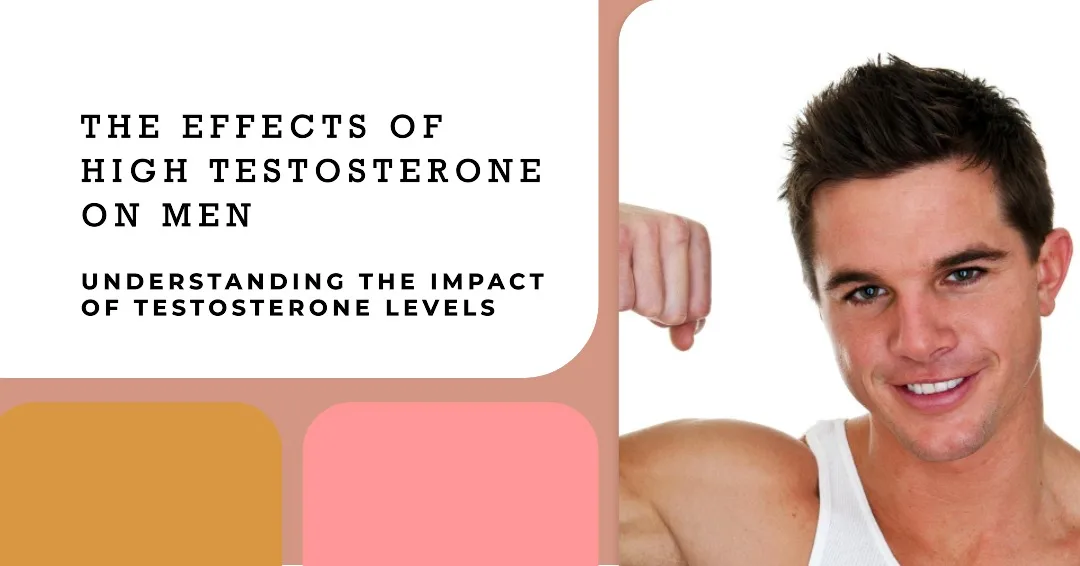What Does High Testosterone Do to a Man
Have you ever wondered what high testosterone does to a man? It’s a fascinating topic that sheds light on the physical and emotional changes that can occur.
High levels of testosterone can have a profound impact on your body and mind. From increased muscle mass and strength to heightened sexual desire and performance, testosterone plays a crucial role in shaping your physicality.
But it doesn’t stop there. High testosterone levels can also influence your mood, emotions, cognitive abilities, and mental well-being. However, it’s important to note that there is a complex relationship between high testosterone and aggression.
In this article, we will explore the various effects of high testosterone and unravel the mysteries behind its impact on men.
Key Takeaways
- High testosterone levels in men can result in physical changes such as increased muscle mass, reduced body fat, facial and body hair growth, and a deeper voice.
- It can have a positive impact on sexual health and performance, including increased libido, improved erectile function, enhanced sexual stamina, and improved mood and confidence.
- High testosterone levels can also affect mood and emotions, leading to increased confidence, assertiveness, motivation, and happiness. However, it can also potentially cause irritability and aggression, highlighting the importance of maintaining a healthy balance.
- Testosterone plays a role in cognitive abilities and mental well-being, with high levels being associated with enhanced spatial and verbal abilities, improved memory, better attention span, increased self-confidence, and reduced risk of depression and anxiety.
Table of Contents
Physical Changes Associated With High Testosterone
When your testosterone levels are high, you may experience noticeable physical changes. These changes can include an increase in muscle mass and strength. Your body may become leaner and more defined as testosterone helps to reduce body fat.
High testosterone levels can also lead to an increase in facial and body hair growth. You may notice thicker, fuller hair on your face, chest, and other areas of the body.
Another physical change associated with high testosterone is a deeper voice. Testosterone helps to develop the vocal cords, resulting in a deeper and more resonant voice.
These physical changes are often seen as signs of masculinity and can contribute to a more confident and assertive presence.
Impact on Sexual Health and Performance
Boosting your testosterone levels can have a significant impact on your sexual health and performance. High testosterone levels are often associated with increased libido, improved erectile function, and enhanced sexual satisfaction. Here’s a table showcasing the potential effects of high testosterone on sexual health and performance:
| Effects of High Testosterone |
|---|
| Increased sex drive |
| Improved erectile function |
| Enhanced sexual stamina |
| Increased muscle mass and strength |
| Improved mood and confidence |
With higher testosterone levels, you may experience a stronger desire for sexual activity, improved ability to achieve and maintain erections, and an overall boost in sexual performance. Additionally, increased muscle mass and strength can contribute to a more satisfying sexual experience. High testosterone levels also play a role in regulating mood and confidence, further enhancing your sexual health and performance.
Effects on Mood and Emotions
Having high testosterone levels can significantly impact your mood and emotions. When your testosterone levels are elevated, you may experience increased confidence and assertiveness. You may find yourself feeling more motivated and driven, with a sense of increased energy and enthusiasm.
High testosterone levels can also enhance your mood, leading to feelings of happiness and well-being. However, it’s important to note that excessive testosterone levels can also have negative effects on mood and emotions. In some cases, high testosterone can lead to irritability, aggression, and even mood swings.
It’s crucial to maintain a balance and ensure that your testosterone levels are within a healthy range to avoid any potential negative effects on your mood and emotions.
Influence on Cognitive Abilities and Mental Well-Being
High testosterone levels in men can positively impact their cognitive abilities and mental well-being. Studies have shown that higher levels of testosterone are associated with improved cognitive function, including enhanced spatial and verbal abilities, as well as better memory and attention span.
To further understand the influence of high testosterone on cognitive abilities and mental well-being, let’s take a look at the following table:
| Cognitive Abilities | Mental Well-Being |
|---|---|
| Enhanced spatial and verbal abilities | Increased self-confidence |
| Improved memory | Reduced risk of depression and anxiety |
| Better attention span | Enhanced motivation and drive |
As you can see, high testosterone levels can have a significant impact on cognitive abilities, leading to improved mental performance. Additionally, it is worth noting that these positive effects on cognitive abilities are often accompanied by enhanced mental well-being.
Now, let’s delve into the relationship between high testosterone and aggression.
Relationship Between High Testosterone and Aggression
Testosterone can influence a man’s level of aggression. When testosterone levels are high, it can lead to an increase in aggressive behavior. Research has shown that individuals with higher levels of testosterone tend to display more dominance and assertiveness. This can manifest in various ways, such as verbal or physical aggression towards others.
High testosterone levels can also contribute to an increased tendency to engage in risk-taking behaviors, which can further contribute to aggressive actions. However, it’s important to note that not all individuals with high testosterone levels exhibit aggressive behavior. Aggression is a complex trait influenced by various factors, including genetics, upbringing, and environment.
While testosterone can contribute to aggression, it isn’t the sole determinant, and other factors should be considered when assessing an individual’s propensity for aggression.
Frequently Asked Questions
Can High Testosterone Levels in Men Lead to an Increase in Body Hair Growth?
Having high testosterone levels in men can lead to an increase in body hair growth.
How Does High Testosterone Affect a Man’s Fertility and Sperm Production?
High testosterone levels can affect your fertility and sperm production. It may lead to a decrease in sperm count and quality, making it harder for you to conceive.
Does High Testosterone in Men Have Any Impact on Their Risk of Developing Cardiovascular Diseases?
Having high testosterone as a man, it’s important to know if it affects your risk of developing cardiovascular diseases. The impact of high testosterone on cardiovascular health should be considered and discussed with your doctor.
Can High Testosterone Levels in Men Cause an Increase in Muscle Mass and Strength?
High testosterone levels in men can increase muscle mass and strength. It’s a natural response that occurs when testosterone binds to receptors in muscle cells, promoting protein synthesis and enhancing physical performance.
Does Having High Testosterone Levels Affect a Man’s Risk of Developing Prostate Cancer?
Having high testosterone levels doesn’t directly affect your risk of developing prostate cancer. However, it may contribute to the growth of existing cancer cells. Regular screenings are crucial for early detection.
Conclusion
In conclusion, having high testosterone levels can lead to various physical changes, including increased muscle mass and body hair. It also plays a significant role in sexual health and performance, as well as mood and emotions.
Moreover, high testosterone can influence cognitive abilities and mental well-being. However, it’s important to note that high testosterone doesn’t necessarily equate to aggression, as this is influenced by various factors.








